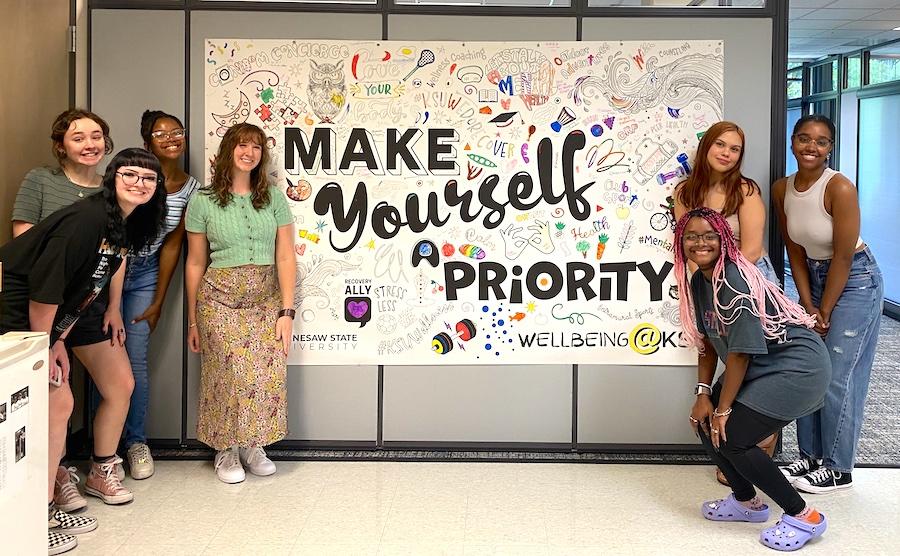
Section Branding
Header Content
New documentary celebrates Georgia's decades of innovative 'certified peer specialist' training
Primary Content
LISTEN: A new documentary examines peer counseling and its impact on mental health treatment. GPB’s Ellen Eldridge reports on, “Stigma to Strength, Georgia and the Certified Peer Specialist Movement.”

Since the late 1980s, Georgia has led the way in training professional peer counselors with substance misuse and mental health challenges.
In July 1999, Georgia was the first state to request and receive Medicaid reimbursement for peer support as a statewide mental health rehabilitation option service, according to the state Department of Behavioral Health and Developmental Disabilities.
The mental illness and addiction recovery movement has grown exponentially, and DBHDD premiered a new documentary examining peer counseling and its impact on mental health treatment.
Stigma to Strength, Georgia and the Certified Peer Specialist Movement premiered last week at The Carter Center, followed by a panel discussion about the movement.
The documentary underscores Georgia's leadership in pioneering the certified peer specialist movement and emphasizes the state's commitment to mental health and addiction recovery, DBHDD Commissioner Kevin Tanner said.
“This documentary is a testament to the incredible strength and resilience of our peer specialists,” Tanner said. “It highlights not only their personal journeys but also the critical role they play in our mental health system. Georgia has been at the forefront of this movement, and we are honored to share these stories of hope and recovery."
RELATED:
- Addiction recovery advocates want lawmakers to budget more for peer support specialists
- Georgia can improve access to mental health care by fully funding 988, report says
- Narcan to 988: Recovery is possible with help from friends, certified peer specialists
Claire Bonnell, a peer supervisor in Middle Georgia who appears in the documentary, said the reason peer support works is twofold in that, first, peers are empowered to build connections and, two, working together allows peers to build each other up.
"We also hold space for anyone that might be having a challenge currently in their journey because, you know, even when we become peer specialists, it doesn't mean that our journey is over," Bonnell said. "And, you know, now we're at the top of the mountain. We still have moments where we struggle, with the challenges that we live with. And to be able to create that environment in a workplace is paramount for peer support to succeed."
Office of Medicaid Coordination and Health System Innovation Director Wendy Tiegreen praised Gov. Brian Kemp and the Georgia Legislature this year for approving a pay rate increase for behavioral health care physicians, nurses, social workers and other practitioners including peer specialists.
"It's a range of about 25% to 39% increase that will happen in Medicaid peer support reimbursement when we get the federal approval," Tiegreen said. "We are very excited about that impact on wages."

